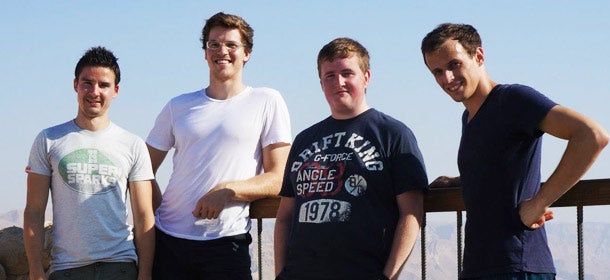Forget Ping Pong and Snacks: How Buffer Digs Deeper With These 4 Startup Perks
Opinions expressed by Entrepreneur contributors are their own.
Ping pong and free snacks have long been the hallmarks of a fun, “work hard, play hard” startup culture. But these days, those ideas have grown as stale as the free cheerios in your office’s kitchen.
Though well-liked by many, at the extreme, such startup staples are often perceived as superficial, unimaginative or even a negative signal that a startup is trying too hard to fit in.
One San Francisco-based startup which makes Buffer, a social-media management tool, has a unique set of perks and practices that manage to distinguish the company’s culture and secure its roots as an organization that prizes communication and life-long learning.
What makes Buffer’s perks and practices meaningful is that they’re not incidental to the task at hand but, rather, deeply connected to making the actual work more fulfilling and enriching to the team as a whole. Here’s a brief look at app-maker’s perks and why they work for the company:
1.Unlimited, free Kindle books.
There’s no better way to learn than through reading, notes the gang at Buffer. So, it’s a no brainer for the organization to provide its employees with unlimited books on Kindle.
The team has picked up books ranging from introductory software development reference books for non-technical staff to books about eastern philosophy that inform Buffer’s ethos of productivity — that is, less is more. Plus, it shows employees that you trust them by ceding control of the purse strings.

Related: Quirky Startup Perks: “A Mating Call’ for Tech Talent?
2.A free Jawbone UP wristband.
The Jawbone UP wristband tracks your sleep, activity levels and what you’re eating. It then relays that data back to furnish insight into how you’re doing and feeling and what behaviors you may want to change.
At Buffer, not only does everyone get a wristband, the tracked data is shared among the team. Rather than coming off as intrusive or “Big Brother,’ the practice ends up sparking conversations about the connection between personal energy levels and productivity at work – and that can be enlightening in itself.
“Work smarter, not harder” is one of Buffer’s mantras, and they use the Jawbone to get those critical insights on how, for example, the amount of sleep they got affects how much work they got done.
#insert RSS here#
3.One-on-one time.
Buffer has a team of more than 10 people spread across multiple time zones, each with their own schedule and preferred way of working. Rather than trying to cram everyone together at specific times every week, you get on a call with just one other person in the company to talk about the challenges you’re facing and the progress you’re making.
Related: Tips for Overcoming Early HR Hurdles
This way, Buffer is able to offer its employees one of the biggest perks of all: control over their time and work, all while fostering meaningful conversation and feedback one at a time.
4.Daily reflections.
I got to know Leo Widrich, co-founder at Buffer, in the first place, because he used my company’s product in a surprising way. iDoneThis allows users to share what they get done with their colleagues every day. But the Buffer team didn’t only use it to replace their daily meetings, they built in their own twist.
They shared their efforts and achievements, but also staffers each write down what they do to improve themselves on a daily basis. It could be anything from making your workflow more efficient to keeping up an exercise streak to working on some reading.
This simple practice has been revelatory for the company. With the full participation of founders and executives alike, listing out one’s personal and professional accolades acknowledges that every person struggles, makes mistakes and has room to improve.
Related: Biggest Mistakes: Skillshare on Knowing Your Strengths — And Weaknesses (Video)
Steve Blank, one of the forefathers of the lean startup movement, distinguishes between startups and established companies with a simple distinction: search versus execution. An established company only needs to do what it already knows how to do. A startup must search, navigate and learn its way to a scalable business model to find its disruptive opportunity.
Having fun along the way is critical. Just make sure your company has ping pong perks and practices to deepen fulfillment and joy with the work itself built into its culture.
What unique perks does your startup offer? Let us know with a comment.
Ping pong and free snacks have long been the hallmarks of a fun, “work hard, play hard” startup culture. But these days, those ideas have grown as stale as the free cheerios in your office’s kitchen.
Though well-liked by many, at the extreme, such startup staples are often perceived as superficial, unimaginative or even a negative signal that a startup is trying too hard to fit in.
One San Francisco-based startup which makes Buffer, a social-media management tool, has a unique set of perks and practices that manage to distinguish the company’s culture and secure its roots as an organization that prizes communication and life-long learning.
The rest of this article is locked.
Join Entrepreneur+ today for access.
Already have an account? Sign In






